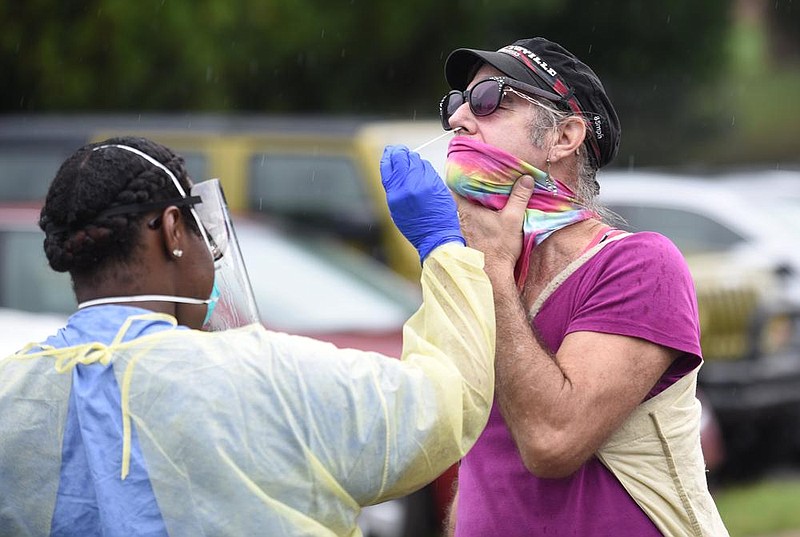This story is a part of The Article, your guide to Arkansas news and culture, presented by the Democrat-Gazette. Sign up for The Article's twice-weekly newsletter here or to see stories that have appeared in past newsletters, go here.
Coronavirus cases and hospitalizations are quickly climbing in Arkansas, rising to levels not seen since before vaccines were widely available. Health officials are warning a third surge may be coming, due in part to the delta variant.
What are cases and hospitalizations like?
As of Wednesday, the seven-day rolling average of new cases per day was 530.That’s on par with mid-to-late February, before vaccines were available to most Arkansans — most adults became eligible in March or April.
Active cases were at about 5,200 as of Wednesday, comparable to late February.
Also as of Wednesday, 361 Arkansans were hospitalized with the illness, a figure comparable to early March.
What effect is the delta variant having on Arkansas?
The Arkansas Department of Health and the University of Arkansas Medical Sciences estimate 25% of new cases in the state are from the delta variant.
The delta variant is 30 to 50 times more transmissible than the alpha variant, which was the first variant after the initial strain. (To learn more about what the delta variant is, go here).
Although it’s difficult to know which cases are from the delta variant — a fraction are tested for it — doctors are reporting a new trend that patients need hospitalizations earlier in the course of illness.
Earlier in the pandemic, before delta, people who required hospitalization did not need it until usually a week or longer after exposure. Now, more patients need it after just three or four days.
The state epidemiologist, Dr. Jennifer Dillaha, also said evidence from Europe suggests the delta variant attacks younger people more aggressively than earlier strains of the virus.
What do experts anticipate in the coming weeks for Arkansas’ outbreak?
Dr. Cam Patterson, chancellor of the University of Arkansas for Medical Sciences, believes a third surge may be coming given that cases are already rising and July Fourth gatherings and the impending start of school are likely to lead to further increases.
Hospitals across Arkansas are reopening dedicated covid units and hospital administrators say they are concerned about staffing shortages and bed capacity.
What can Arkansans do to stay safe?
Officials are urging everyone eligible to get immunized. The vaccines provide protection against the delta variant, and other variants — it’s just not yet clear to what extent.
However, experts believe that even if a vaccinated person becomes infected with the delta variant, they’re unlikely to experience severe illness or require hospitalization.
Gov. Asa Hutchinson said last week 3,765 Arkansans had been hospitalized since Jan. 26 with the coronavirus, and 98.3% of them were not immunized.
Wearing masks in public can also reduce the spread of the virus.
Read more on the most recent case numbers from reporter Andy Davis, and read more about how the delta variant may be affecting Arkansas from reporter Lara Farrar.
